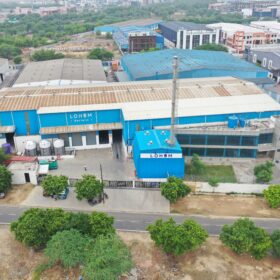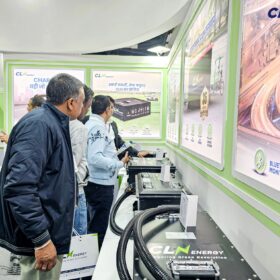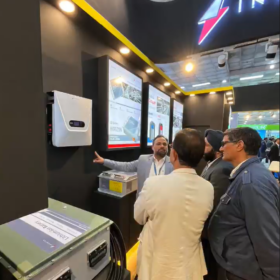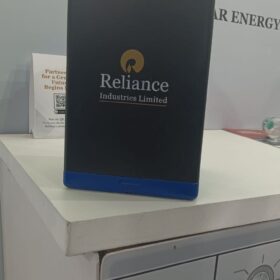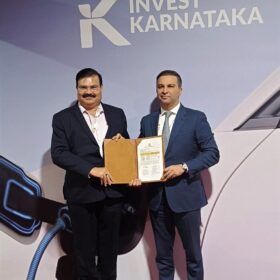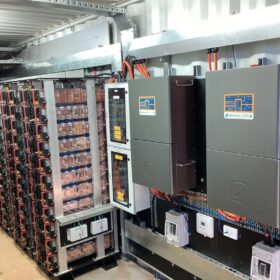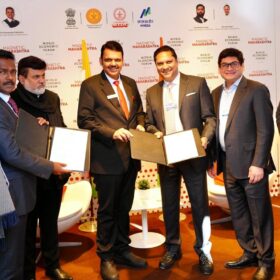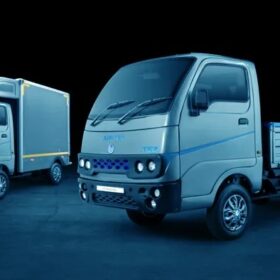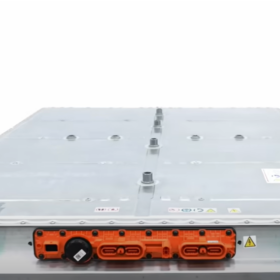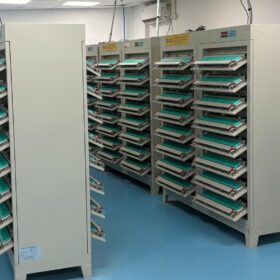Lohum announces India’s first battery-grade lithium refinery
Lohum stated its new lithium refinery will have the capacity to produce 1,000 metric tonnes annually.
CLN Energy secures $5 million lithium battery, related products order from Singaporean company
CLN Energy has secured an order with a Singapore-based multinational company to supply lithium-ion batteries, cabinets and other related items.
Inverted to build 5 GWh fully automated battery factory in Rajasthan
Inverted has unveiled plans to establish a fully automated battery plant in Ghilot, Rajasthan, with an annual production capacity of 5 GWh. The 4-acre facility will produce battery solutions for four-wheelers, light commercial vehicles and battery energy storage systems.
Reliance Industries awarded 10 GWh advanced chemistry battery capacity under PLI Scheme
India’s Ministry of Heavy Industries has signed a programme agreement with Reliance New Energy Battery Ltd for 10 GWh capacity under the production-linked incentives (PLI) Scheme for advanced chemistry cells.
Epsilon Group commits INR 15,350 crore for EV battery materials, testing facility in Karnataka
Epsilon Group plans to invest INR 9,000 crore to set up a graphite anode manufacturing plant and INR 6,000 crore for a lithium iron phosphate (LFP) cathode manufacturing plant in Karnataka. In addition, it will invest INR 350 crore to build a battery materials and battery testing R&D and training center in the state.
Australian manufacturer bets on lithium-titanium-oxide batteries
Zenaji, an Australian manufacturer of lithium-titanium-oxide (LTO) batteries, says the LTO market will hit $5.8 billion by 2032, growing at a 12.6% annual rate. It claims that its Eternity battery system is poised to capitalize on the trend.
Blue Energy to set up EV truck, battery manufacturing facility in Maharashtra
Blue Energy Motors has signed an agreement with the Government of Maharashtra to set up a manufacturing facility designed to produce 30,000 EV trucks annually. The facility will also house a battery pack line.
Middle-mile logistics: Why commercial EVs are the missing link in sustainable supply chains
As dark stores move closer to consumers to reduce turnaround times, the demand for frequent, efficient restocking has surged. This shift has brought the middle mile into focus as a space ripe for innovation, particularly through the integration of commercial electric vehicles (EVs).
Mahindra unveils new EV manufacturing and battery assembly facility in Chakan
The new EV manufacturing and battery assembly facility is located within the company’s 2.83 km2 fully integrated, highly automated manufacturing ecosystem to produce its Electric Origin SUVs.
Neuron Energy ties up for two-wheeler battery production
Neuron Energy, an EV battery manufacturer in India, has partnered with a two-wheeler original equipment manufacturer (OEM) to establish a facility with a capacity to produce 3,000 battery packs monthly with a total energy output of 100 MWh. Over the next two years, the partnership aims to boost this capacity to 150 MWh through an investment of INR 150 crore.
